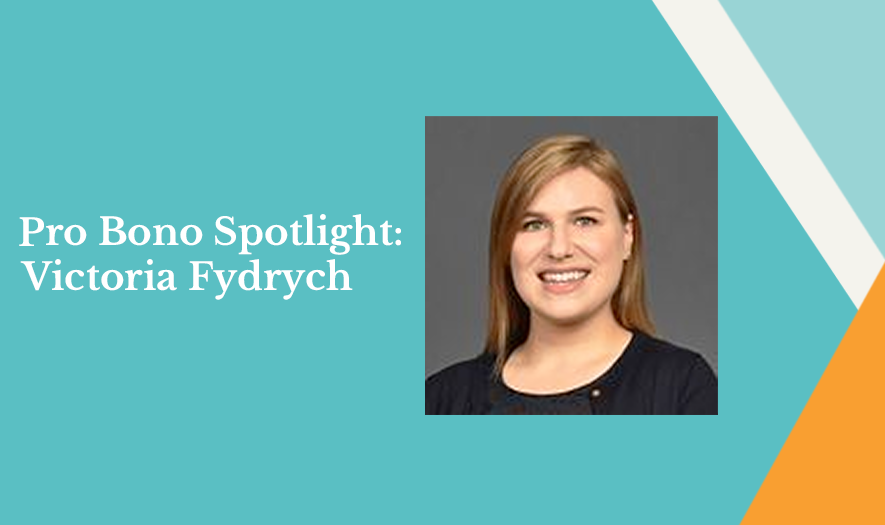Victoria Fydrych is a litigation associate at the law firm Akin Gump Strauss Hauer & Feld LLP. After externing for a law school semester with the VOLS Immigration Project, Victoria has continued to support pro bono legal services through direct assistance to under-resourced community members and as a member of the VOLS Pro Bono Advocates Council (PBAC). PBAC members are dedicated to VOLS’ mission of empowering New Yorkers to attain dignity, security, and opportunity through access to legal services. We had the pleasure of speaking with Victoria about her beginnings with pro bono work, how it has impacted her career, and the importance of service during the pandemic.

What interested you in volunteering with immigration clients?
I came from a first-generation immigrant family, so my parents are immigrants and I was born here. I grew up in a community that had immigrants from all over the world. I think pretty early on in my life, I understood what it meant to have access to and not have access to good legal services. I think it’s especially difficult to get good legal representation when you have little knowledge of the legal system, and usually not very much knowledge of the language in which that legal system functions. It’s something with which I saw many people in my life struggle. Growing up, I always understood that this was a big need, and frankly that was something that motivated me to be a lawyer. To be someone who would provide good legal services and support for people who really need it.
How has your experience as an attorney been enriched by volunteering?
I think that volunteering is one of the best things that you could do during your legal career. To have legal knowledge and skills is so empowering, and using that skillset to enrich and aid people’s lives—I can’t imagine a better use than that.
I think beyond just the feeling of knowing that you helped someone, there’s also the fact that doing this kind of work makes you a better lawyer. It bolsters your client interviewing skills, it allows you to take a leadership role in a way that is a huge point of growth, especially for younger associates, and empowers you to know that you can manage a case on your own, all while doing good.
In light of the COVID-19 pandemic, why do you think this type of work is particularly important today?
For countless people across this city (and the world), the pandemic compounded pre-existing problems in addition to creating entirely new hardships. It only makes pro bono work more important. I would hope that those who were not attuned to the challenges facing various communities in our city now have better insight into, or more information about, what others are struggling with and, perhaps most importantly, the fact that it is very much within our power to help.
If you had a colleague who was on the fence about volunteering, how would you engage them to pursue volunteering with VOLS?
I think the best way to engage those individuals is to lead with the sort of impact that their service could make on a pro bono client. Sometimes, it’s easy getting caught up in the hectic day-to-day of a law firm or large company, and to get really bogged down by the details of what’s on your plate. What I think pro bono work helps you do is zoom out a bit and see that you can also apply those same skills to change someone’s life.
